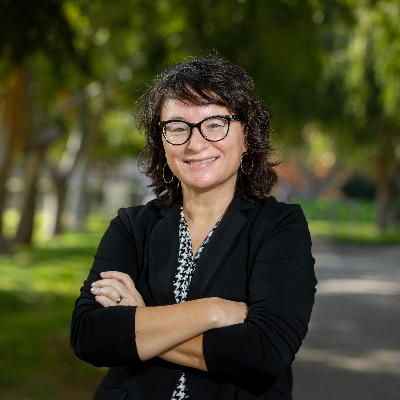
Professor Kim Yi Dionne is an associate professor here at the University of California Riverside (UCR). Graduating from University of California, Los Angeles (UCLA) with a Bachelors, Masters and doctoral degree in political science, she has since focused her research on African politics, particularly in Malawi. Current projects include vaccine hesitancy in Malawi, natural disasters in Africa and recent elections in African countries like in Liberia, recent elections in African countries like in Liberia and the Democratic Republic of the Congo (DRC), also referred to as Congo-Kinshasa. Her book, “Doomed Interventions: The Failure of Global Responses to AIDS in Africa,” her podcast she co-hosts, “Ufahamu Africa,” as well as the multitude of publications that center around African politics, all depict her work for this field of study.
An interview with Professor Dionne revealed that political science was not her initial major when she began college at UCLA. She started as a biochemistry major, but soon discovered that she didn’t enjoy science lectures or certain subfields like physics, which her then-major required several classes of. Eventually, after exploring other majors, she landed on political science due to an interest in politics and government. The major requirements for political science and international relations like economics and anthropology directed her interest towards poverty and inequality on a global level.
During her last year in undergrad, she registered for an African politics class with a then-unknown, brand-new professor, simply because the time fit well with her schedule.
Professor Dionne explains how “that class really changed my life. It made me want to study Africa. And turns out that professor was Dan Posner, and he ended up eventually becoming my Ph.D advisor and he is probably one of the most famous political scientists who studies Africa in the world… I was just very lucky to be in his class… he made studying another part of the world really fun and interesting… in a way that was deep and meaningful.”
Recounting her undergraduate experience, she also mentions her research work with Arthur Stein, another “excellent instructor” that studied peace and security in international relations.
These positive experiences with professors during Professor Dionne’s time in college is reflected in her strong belief in the importance of mentor-mentee relationships, which she actively fosters in her own research lab, the Dionne Publicly Engaged Research Lab (DPERL), where she employs many undergraduate students.
In 2022, Professor Dionne co-founded the Minority Serving Institution Research Academy (MSIRA), alongside Professor Marissa Brookes and Professor Jennifer Merolla. MSIRA is a research fellowship, consisting of 10 weeks taking a course on political science research methods (POSC114L) followed by 10 weeks of stipended work as a research apprentice matched with a political science professor at UCR.
Through DPERL and MSIRA, Professor Dionne emphasizes the importance of giving students the space to grow. She expressed how at UCR she’s “not convinced there [is] a strong enough culture around knowledge production among students … [and] a lot of students are just doing what they can to make it through, but they’re not given much space to see themselves as knowledge producers … Our students have really creative ideas and they’re not given enough opportunities to share those and I don’t see our student body reflected in the faculty … so it was really important to me to try to come up with a way of empowering students to feel like they could be creative and come up with their own research ideas.”
Recalling her role as a mentor, she gives credit to her students: “I’m very fortunate that the students I encounter who want to be in my lab or in MSIRA, they’re already hard-working, smart, ambitious students … I think sometimes though, they’re at an institution where there’s a lot of barriers to their success. And I’m just there to lift the veil sometimes.”
Currently, Professor Dionne is conducting research on vaccine hesitancy in Malawi, her specific country of interest within African politics. She seeks to understand why and how vaccine hesitancy developed in Malawi, in particular the challenges surrounding deployment of vaccines.
Her interest in Malawi began during graduate school, where she was asked to aid in a National Institutes of Health (NIH) funded project to study HIV/AIDS in Malawi. To Professor Dionne, “Malawi is such a special place … [and] is always going to hold a special place in my heart … I met my husband on that trip … and then later that was where my daughter took her first step … it is a beautiful place with interesting people and interesting issues and a fascinating history.”
She also finds the human-environment interaction in Malawi moving: “There’s a large lake in the country where people need the lake to sustain their livelihoods. You know, not everyone in Malawi lives on the lake, but there’s something really powerful about that huge body of water and how much the lake means for people in the country.”
On a more research-oriented perspective, Malawi as a country aligns with Professor Dionne’s interest in studying global poverty and inequality: “Malawi is also a country with low-income and a lot of people who don’t have enough to meet their basic needs … Why? Why are some people poor? What are the structural conditions that have made it so that people don’t necessarily have a lot of good chances to succeed? To what extent does [assistance from international organizations and other countries] actually work and what can be done to make a permissive environment for Malawians, who are already working hard, to actually flourish? I don’t think that there’s answers to those questions, but I feel really motivated to ask, then try to seek answers.”
More information on Professor Dionne’s research and classes, as well as her publications can be found on her website.
This article was amended on 1/20/2024 to reflect that the DRC is also known as Congo-Kinshasa







